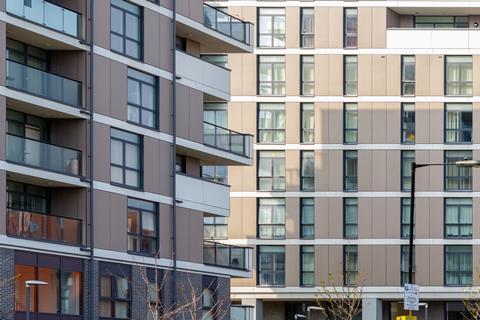Treasury decides to remove “non-profit” organisations from scope of new levy
The Treasury has amended plans for a new tax on developers in order to exempt housing associations and other non-profit making developers from the charge.
The draft legislation for a new Residential Property Developer Tax, designed to raise £2bn over 10 years to help pay for building safety repairs, was amended by the Treasury on Friday following concerns from housing associations that the charge to hit the development of affordable housing.

An explanatory note to the draft legislation now says that the text “provides an exclusion for non-profit housing companies”, as defined in existing legislation, and that this exemption includes “wholly owned subsidiary companies of a non-profit housing company”.
The Treasury has said previously that the tax, which will be paid as a surcharge to Corporation Tax, will apply to all residential property developers with profit of more than £25m, but it hasn’t set a rate for it.
It originally published the draft legislation on September 20, and says the final details of the tax – including the rate at which it will be applied, will be set out in the Comprehensive Spending Review at the end of this month.
Prior to the update exempting housing associations, the Treasury had said it didn’t need to offer an exemption for the development of affordable housing, because housing associations were largely charities, which are automatically exempt from paying corporation tax.
However, the housing association sector is thought to have argued that much of the housing they produce is delivered by subsidiary firms, many of which are not registered charities, meaning the tariff could damage the delivery of affordable homes. Housing associations were informed of the change by officials in a specially-convened meeting on Friday.
It is understood the Treasury’s move will mean that all development activity by housing associations will be exempt from the levy – even the development of homes for market sale, the profits from which social landlords argue are ploughed back in to building more affordable homes.
Geeta Nanda OBE, chief executive of housing association MTVH and chair of the G15 group of major London-based social landlords, said: “I’m pleased that the government has listened to our calls for not-for-profit housing providers’ activity to be exempted from the tax, as it would be wrong if this welcome proposal had the unintended consequence of reducing resources available to build new affordable homes.
“G15 members are planning to spend £3.6bn on building safety works over the next 15 years, in addition to the significant investment we have already made. We look forward to confirmation from the Chancellor in the Budget at the end of the month.”
Catherine Ryder, director of policy and research at the National Housing Federation, said the NHF welcomed the decision by HM Treasury. She said: “Housing associations are non-profit organisation that build properties for private sale to generate funds for the development of new affordable homes and to improve existing social housing.
“The Residential Property Developer Tax is seeking to raise £2bn over 10 years to help pay for building safety costs for leaseholders, a welcome intervention to help residents who bear no responsibility for building safety failures. We urge government go further and fund all of these safety works up front before claiming the money back from those responsible to free social housing providers and leaseholders from the burden of these costs.”
The British Property Federation has also argued that Build to Rent developers should be exempt from paying the tax, because Build to Rent landlords have never sought to pass the cost for repairs on to their tenants, and are already liable for all repair costs themselves.
The tax was first announced in February by then housing secretary Robert Jenrick as part of a package of measures designed to address the fire safety crisis.
The Treasury has been contacted for comment.











No comments yet